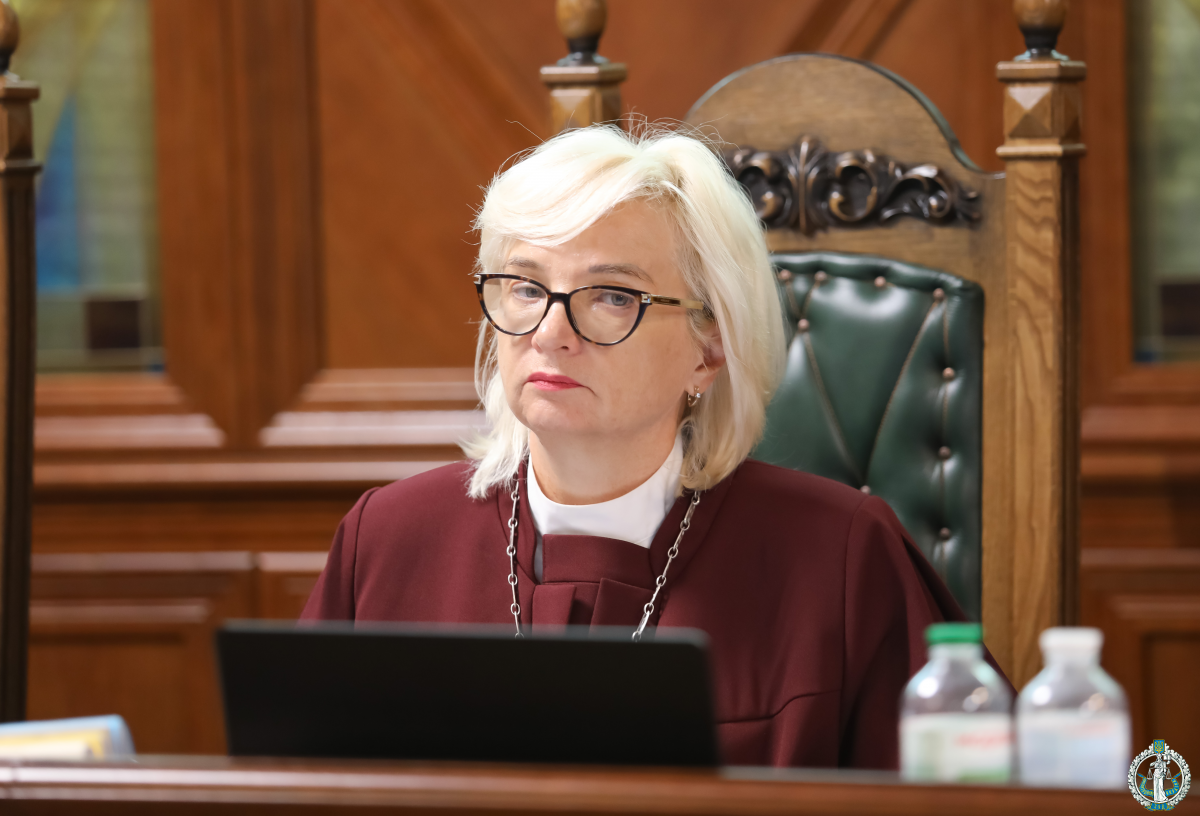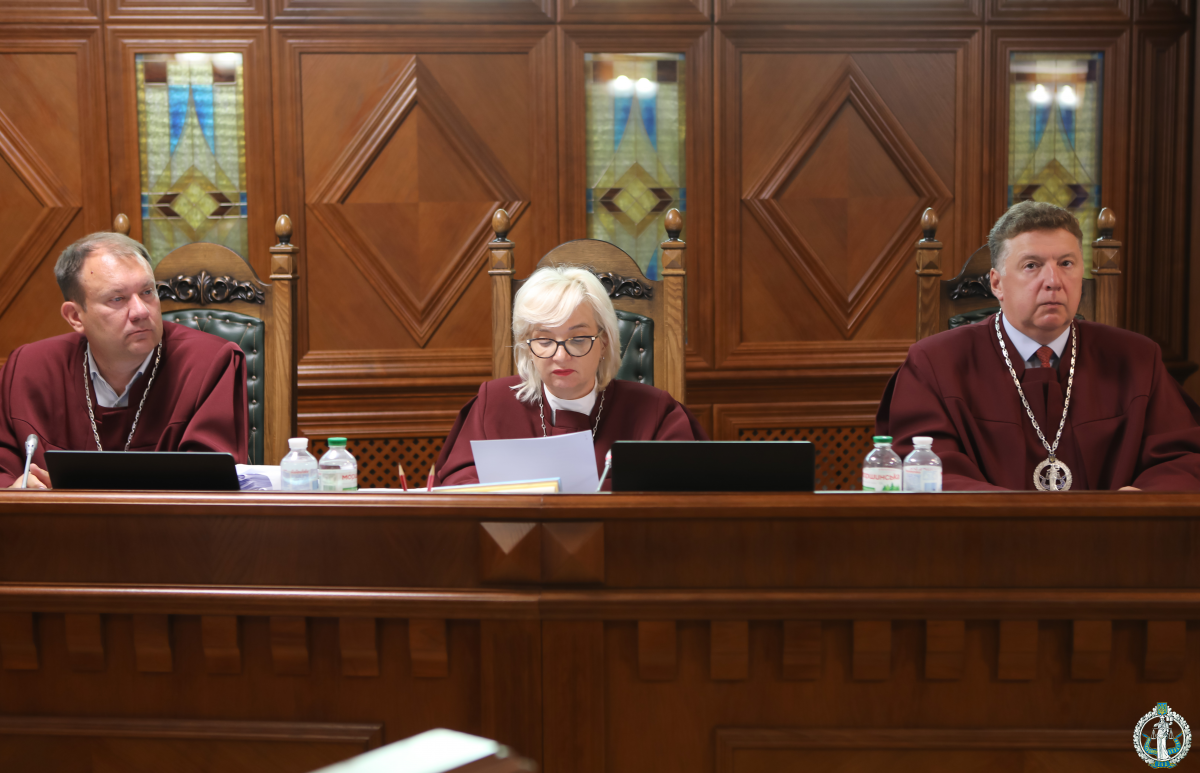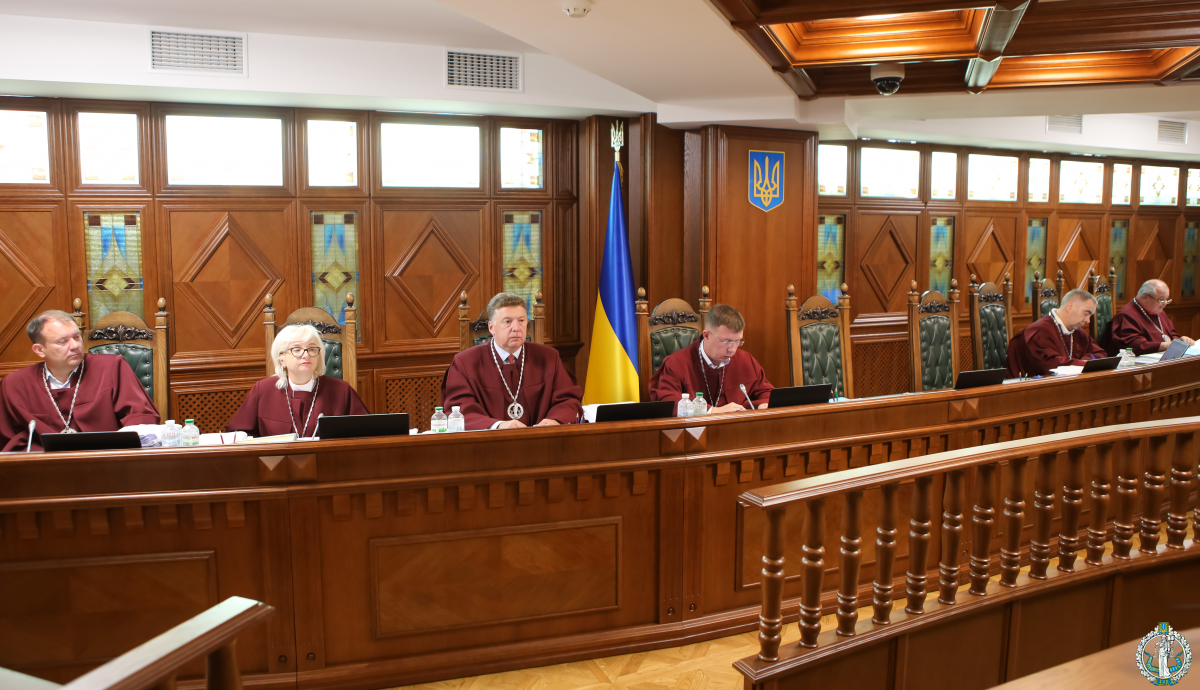Today, on September 11, 2024, the Second Senate, at the public part of the plenary session, deliberated the case upon the constitutional complaint of Valentyna Pryshchepa regarding the constitutionality of Article 8.2 of the Law of Ukraine “On the State Budget of Ukraine for 2024” No. 3460-IX dated November 9, 2023 (hereinafter , “Law No. 3460”).
During the plenary session, the judge-rapporteur in the case, Galyna Yurovska, reported that Valentyna Pryshchepa had filed a complaint with the Constitutional Court of Ukraine to verify the compliance of Article 8.2 of Law No. 3460, which sets the minimum wage applied as a calculation value for calculating payments under a court decision at UAH 1,600, with Articles 22.3, 24.1, 24.2, 46.1, Article 50.1 of the Constitution of Ukraine.
The content of the constitutional complaint and the materials attached to it reveals the following.
The Zhytomyr District Administrative Court ordered the Main Department of the Pension Fund of Ukraine in the Zhytomyr Region (hereinafter, the “Department”) to accrue and pay Valentina Pryshchepa a pension increase as a pensioner who does not work and resides in the territory of radioactive contamination, established by Article 39 of the Law of Ukraine “On the Status and Social Protection of Citizens Affected by the Chornobyl Disaster” No. 796-XII dated February 28, 1991 as amended (hereinafter, “Law No. 796”), “in the amount equal to two minimum wages”. On August 3, 2023 and January 4, 2024, the State Enforcement Officer of the Decision Enforcement Division (the “State Enforcement Officer”) sent claims to the Department and obliged the Department, as the debtor, to comply with the court decision in full. The reason for sending the demand for the second time was the determination by Article 8 of Law No. 3460 of the new minimum wage as of January 1, 2024.
The applicant filed a lawsuit against the Decision Enforcement Division, in which, taking into account the amended statement of claim, she requested: to declare as unlawful the inaction of the state enforcement officer in the said enforcement proceedings, which consisted of failure to take all measures prescribed by law to ensure the enforcement of the court decision; to oblige the state enforcement officer to take all measures established by law to ensure its enforcement.
The first instance and appellate courts dismissed Valentyna Pryshchepa's administrative claim, reasoning that the state enforcement officer had not failed to act within the said enforcement proceedings, as he had taken all measures prescribed by law to enforce the court decision. At the same time, the courts stated that when calculating the pension increase for Valentyna Pryshchepa as a pensioner who does not work and resides in the territory of radioactive contamination, the Department, which is the debtor in this enforcement proceeding, applied the estimated value set forth by Article 8.2 of Law No. 3460.
The courts noted that this increase to the pension is not a one-time but a permanent one, which is why the operative part of the decision (which is being enforced) does not set a deadline for such accrual and payment and uses the expression “equal to two minimum wages (according to the law on the State Budget of Ukraine for the relevant year)” rather than specifying a specific law.
According to the author of the complaint, the disputed provision of Law No. 3460 violates the guaranteed right to social protection of a person residing in a radioactively contaminated area, which contradicts Article 46 of the Constitution of Ukraine, as well as the right to proper compensation for damage caused by violation of the right to a safe environment for life and health (Article 50.1 of the Constitution of Ukraine).
In addition, the disputed provision of Law No. 3460, contrary to the requirements of Articles 22 and 24 of the Constitution of Ukraine, worsens her legal situation by narrowing the content and scope of the social right defined by a special law and puts her in an unequal position compared to persons “who do not have a court decision”.
The judge-rapporteur also informed that in order to ensure a full and objective deliberation of the case, she had sent inquiries to the President of Ukraine, the Verkhovna Rada of Ukraine, a number of other bodies of state power, and higher education establishments with a request to express their opinions on the issues raised in the constitutional complaint.
The court examined the case file in the public part of the plenary session and proceeded to the in-camera part to deliver a decision.
The video of the plenary session is available on the official website of the Court in the section “Archive of video broadcasts of sessions”.




